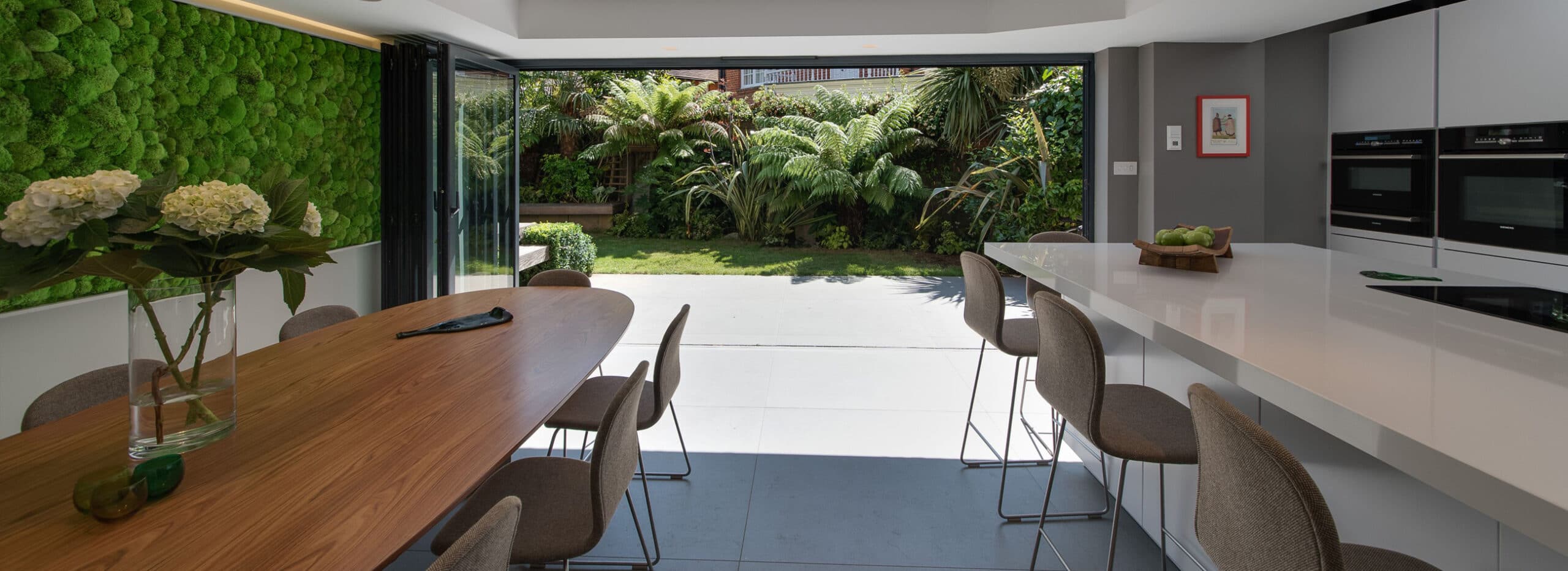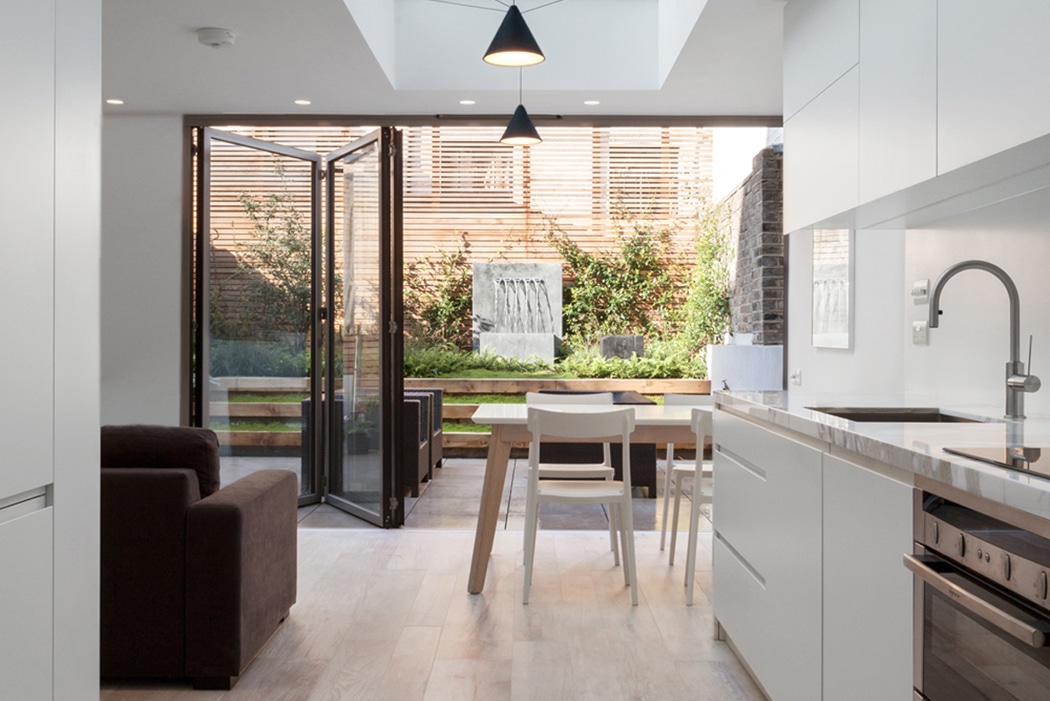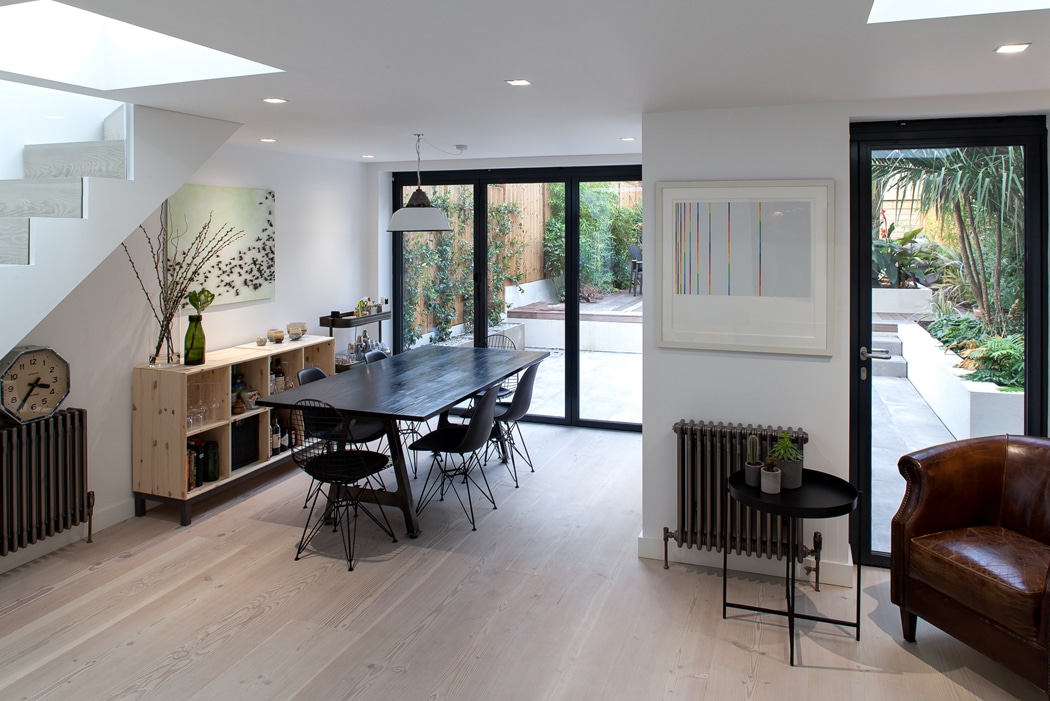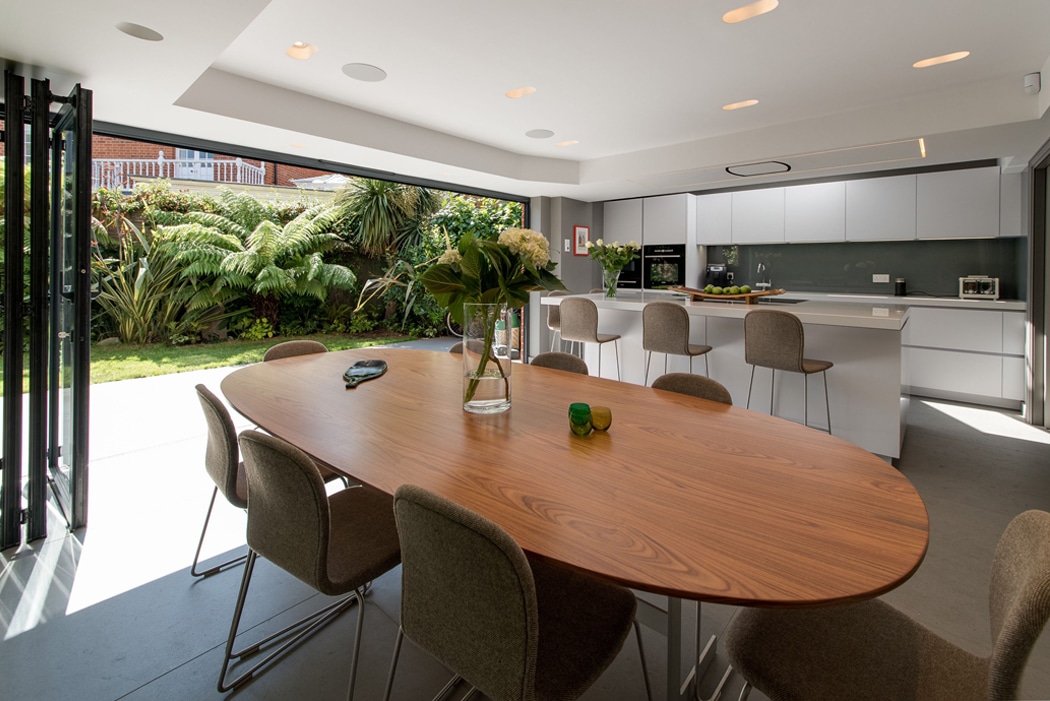
For those undertaking home improvement projects or seeking to create their own Grand Designs style home, choosing glazed doors to connect the house and garden is often a key decision.
Over the past 20 years the choice has widened as products such as bifold doors and large glazed sliding doors have become popular.
Originating in Germany in the mid 1980s, bifold doors—also known as bi folding doors, concertina doors or folding sliding doors—first started to be installed in the UK from the year 2000, with IDSystems amongst the first to import the systems into the UK from bifold door specialists SUNFLEX.
The popularity of bifold doors has grown substantially in the last two decades, primarily because of their ability to completely open up an aperture, providing an almost seamless transition between inside and out.

With panels connected by hinges that open by sliding and stacking to one (or both) ends, bifold doors have helped transform the design of many contemporary homes. Gone are the limits on opening sizes and traditional ‘patio door’ styles.
Bifold doors can be designed for huge openings up to 24m across, but more often nowadays are installed in odd-numbered configurations up to 5m wide. For those planning an extension and wanting to completely open up the room to connect with the patio then bifold doors are the perfect solution.
Bifold doors offer the widest range of configurations and designs, from standard folding door panels to Art Deco inspired, steel look heritage bifold doors.
In terms of configurations the choice is almost endless. IDSystems’ SUNFLEX bifold doors can be designed to completely open up a corner of a room or even feature curved sets for a real ‘wow-factor’.
More typically, bifold doors are designed in straight sets with panels stacking to one end or opening from the centre to stack at either end for larger apertures.
Every set of bifold doors is bespoke made, so this versatility allows them to be customised to the exact requirement of each project.
Traditionally, bifold doors have been available in three materials: timber, uPVC or aluminium. Over the years aluminium has become the vastly favoured material because of its maintenance free properties and innate strength and rigidity.
Whilst uPVC doors are less expensive, the relative flexibility of the material means that frames must be much larger, thus reducing the proportion of glass. It also has a tendency to expand and contract as the temperature changes, which makes it less suited to a moving door.
For those undertaking a period renovation, timber bifold doors may be a requirement of planning permission, however with regular maintenance required to protect the timber from the elements, along with chunkier frames, timber has proven to be a less common choice of material for bifold doors over the last decade.

As bifold doors have developed so has the design and security provision. IDSystems’ SUNFLEX bifold doors all feature multi-point locking mechanisms including shoot-bolts in the top and bottom of the doors.
For those constructing a new-build home then the option for laminate glass which, like a car windscreen smashes but does not break, adds an extra level of security performance.
SUNFLEX bifold doors all exceed the PAS 24 testing standard to comply with the latest updates with Building Regulations Document Q – making them an ideal choice for those who prioritise security for their home.
Whether you are aiming for Passivhaus standards or merely seeking to improve the thermal performance of your home then getting the glazing specification for your bifold doors right is crucial.
IDSystems’ range of SUNFLEX bifold doors can achieve an industry market combination of incredibly low U-values (from just 0.8W/m²K) and outstanding protection from wind and rain.
The double glazed SUNFLEX SF55 system is the perfect choice for those undertaking most projects, whilst the triple glazed SUNFLEX SF75 is the go-to option for those planning an eco-build type home.
Bifold doors aren’t necessarily the right option for every project. As a manufacturer and installer of award-winning bifold doors, sliding doors AND slide and turn doors, IDSystems is ideally placed to offer impartial insight and advice. We are committed to offering you advice on the style of door that suits you and your project best.
With panels limited to 1.2m and slightly wider frames, bifold doors have their limitations. For those seeking to make the most of a view, having it interrupted by the profile of the doors isn’t ideal, so with panels up to 3m wide and incredibly slim frames from just 20mm wide, sliding doors tend to be the most popular choice in those circumstances.

Every project is different, both in terms of design and the requirements of the homeowners. However based on our 20 years of experience we would say typically bifold doors are best suited to openings under 5m where the connection between inside and out is key.
At that size, giving up a proportion of the opening to a fixed frame with sliding doors has more of an impact on the connection between home and garden – whereas the ability to completely open up bifold doors and extend your living space out onto the patio can be a hugely popular concept.
To learn more information about IDSystems aluminium bifold doors, request a quote for your project, or ask advice on selecting the right doors for your home, call us on 01603 408804 or use the online chat below.